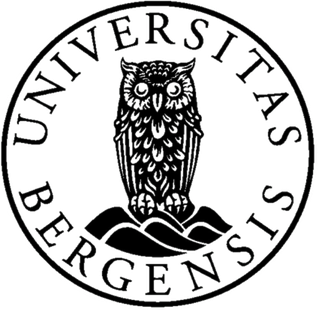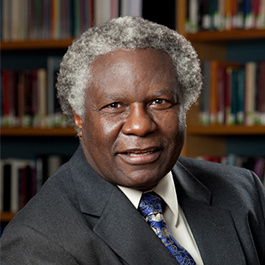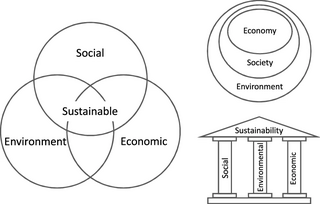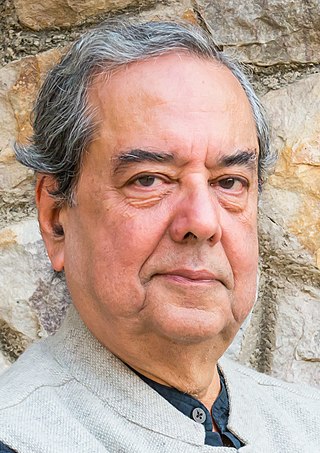
The University of Bergen is a public research university located in Bergen, Norway. As of 2021, the university has over 4,000 employees and 19,000 students. It was established by an act of parliament in 1946 based on several older scientific institutions dating back to 1825, and is Norway's second-oldest university. It is considered one of Norway's four "established universities" and has faculties and programmes in all the fields of a classical university including fields that are traditionally reserved by law for established universities, including medicine and law. It is also one of Norway's leading universities in many natural sciences, including marine research and climate research. It is consistently ranked in the top one percentage among the world's universities, usually among the best 200 universities and among the best 10 or 50 universities worldwide in some fields such as earth and marine sciences. It is part of the Coimbra Group and of the U5 group of Norway's oldest and highest ranked universities.

Utrecht University is a public research university in Utrecht, Netherlands. Established 26 March 1636, it is one of the oldest universities in the Netherlands. In 2022, it had an enrollment of 37,675 students, and employed 8,584 faculty members and staff. More than 400 PhD degrees were awarded and 8,500 scientific articles were published. The university's 2022 budget was €2.606 billion, consisting of €1.067 billion for the university and €1.539 billion for the University Medical College Utrecht.

Cranfield University is a British postgraduate-only public research university specialising in science, engineering, design, technology and management. Cranfield was founded as the College of Aeronautics (CoA) in 1946. Through the 1950s and 1960s, the development of aircraft research led to growth and diversification into other areas such as manufacturing and management, and in 1967, to the founding of the Cranfield School of Management. In 1969, the College of Aeronautics was renamed the Cranfield Institute of Technology, was incorporated by royal charter, gained degree awarding powers, and became a university. In 1993, it adopted its current name.

Sir David Anthony King is a South African-born British chemist, academic, and head of the Climate Crisis Advisory Group.

The University of Bern is a public research university in the Swiss capital of Bern. It was founded in 1834. It is regulated and financed by the Canton of Bern. It is a comprehensive university offering a broad choice of courses and programs in eight faculties and some 150 institutes. With around 19,000 students, the University of Bern is the third largest university in Switzerland.

Erasmus University Rotterdam is a public research university located in Rotterdam, Netherlands. The university is named after Desiderius Erasmus Roterodamus, a 15th-century Christian humanist and theologian.
Imperial College Business School, a division of Imperial College London in London, England, was opened by Queen Elizabeth II. The school's courses cultivate innovative thinking and responsible leadership, preparing its students to drive global impact.
Myles Robert Allen is an English climate scientist. He is Professor of Geosystem Science in the University of Oxford's School of Geography and the Environment, and head of the Atmospheric, Oceanic and Planetary Physics Department.

Alliance Manchester Business School is the business school of the University of Manchester in Manchester, England. It is one of the oldest business schools in the UK, and provides education to undergraduates, postgraduates and executives.

Calestous Juma was a Kenyan scientist and academic, specializing in sustainable development. He was named one of the most influential 100 Africans in 2012, 2013 and 2014 by the New African magazine. He was Professor of the Practice of International Development and Faculty Chair of the Innovation for Economic Development Executive Program at Harvard Kennedy School. Juma was Director of the School's Science, Technology and Globalization Project at Harvard Kennedy School as well as the Agricultural Innovation in Africa Project funded by the Bill and Melinda Gates Foundation. His last book, Innovation and Its Enemies: Why People Resist New Technologies, was published by Oxford University Press in 2016.

Andrew (Andy) John Hoffman is a scholar of environmental issues and sustainable business. He is the Holcim (US) Professor of Sustainable Enterprise at the University of Michigan, with joint appointments at the Ross School of Business and the School for Environment and Sustainability (SEAS). He has also served as Faculty Director and Associate Director of the Frederick A. and Barbara M. Erb Institute for Global Sustainable Enterprise, and as Education Director at the Graham Sustainability Institute. Prior to the University of Michigan, he completed a post-doctoral fellowship at the Kellogg School of Management at Northwestern University and served on the faculty of the Boston University School of Management.
Lancaster University Management School (LUMS) is the business school of Lancaster University in Lancaster, England. The school's history can be traced back to the establishment of departments of marketing and of operational research at the university's foundation in 1964. These and other related departments were organised into the "School of Business and Organizational Studies" in 1969. A full range of subjects are taught, ranging from undergraduate degrees to postgraduate degrees, including executive and full-time MBAs, PhDs and post-experience executive education.

Sustainability is a social goal for people to co-exist on Earth over a long time. Definitions of this term are disputed and have varied with literature, context, and time. Sustainability usually has three dimensions : environmental, economic, and social. Many definitions emphasize the environmental dimension. This can include addressing key environmental problems, including climate change and biodiversity loss. The idea of sustainability can guide decisions at the global, national, and individual levels. A related concept is that of sustainable development, and the terms are often used to mean the same thing. UNESCO distinguishes the two like this: "Sustainability is often thought of as a long-term goal, while sustainable development refers to the many processes and pathways to achieve it."
The UK Energy Research Centre (UKERC) carries out interdisciplinary research into sustainable future energy systems. It's whole systems research programme addresses the challenges and opportunities presented by the transition to a net zero energy system and economy.

O.P. Jindal Global is a private Institution of Eminence Deemed to be University located at Sonipat in Haryana, India. It was established in 2009 as a philanthropic initiative of its founding chancellor, Naveen Jindal, in memory of his father, O.P. Jindal. In 2020, UGC named JGU as an Institute of Eminence, making it one of the four private universities and one of the twelve of all universities in India to have ever received the distinction. The university offers 45 programmes in law, liberal arts, life sciences and business.
Ben Caldecott is a British expert in sustainable finance, and founding director of the sustainable finance programme at the University of Oxford Smith School of Enterprise and the Environment. and a supernumerary fellow at Oriel College. Caldecott is also the founding director of the UK Centre for Greening Finance & Investment (CGFI), established by UK Research and Innovation in 2021 as the national centre to accelerate the adoption and use of climate and environmental data and analytics by financial institutions internationally. He is a Trustee of the Green Alliance.

Janelle Knox-Hayes is a Professor of Economic Geography in the Department of Urban Studies and Planning at the Massachusetts Institute of Technology. Her research and teaching explore the institutional nature of social, economic and environmental systems, and the ways in which these are impacted by changing socio-economic spatial and temporal dynamics.
Cameron Hepburn is the former Director of the Smith School of Enterprise and the Environment, the Battcock Professor of Environmental Economics at the University of Oxford, and formerly a professor at the London School of Economics and Political Science. He is also the Director of the Economics of Sustainability Programme at the Institute for New Economic Thinking at the Oxford Martin School.

Ashok Khosla is an Indian environmentalist currently based in Delhi. He received his PhD in experimental physics from Harvard University with a doctoral dissertation in the hyperfine structure of hydrogen halide isotopes. He is the co-chair of United Nations Environment Programme’s International Resource Panel (UNEP-IRP) and is internationally known for pioneering and contributing to sustainable development. He is recognized for popularizing the word and concept of "sustainability" in international forums. He was actively involved in various projects that defined the environmental views and activities of institutions such as UNEP, UNESCO, UNU, the U.S. Academy of Sciences, IUCN, and the ICSU/SCOPE. He was also the President of IUCN and Club of Rome. Ashok Khosla is member of the World Future Council.














